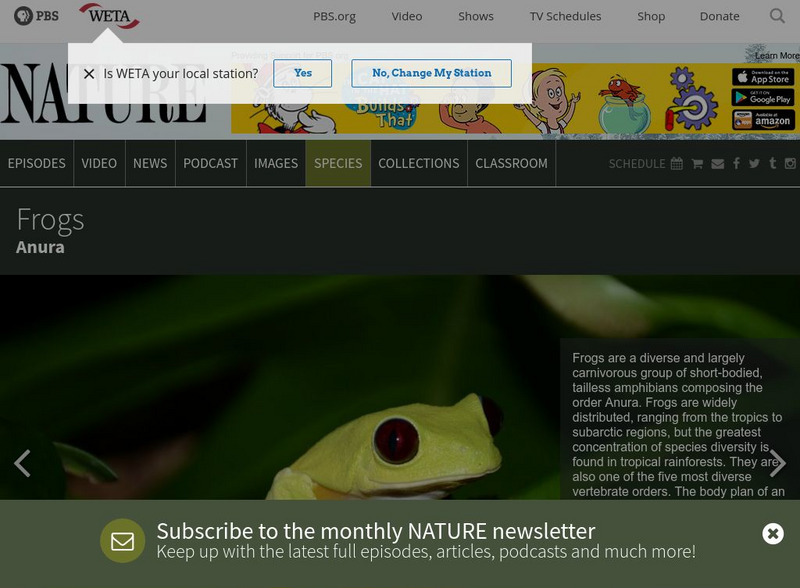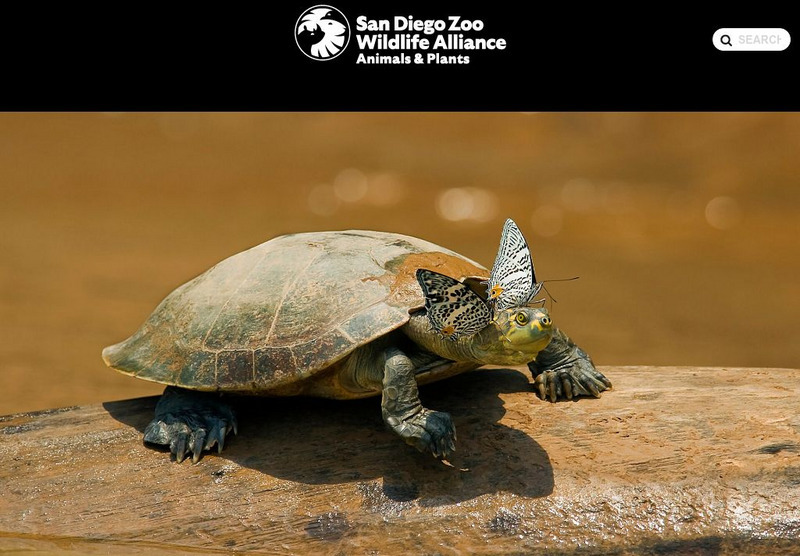Hi, what do you want to do?
Curated OER
Animals Finding Rice Paddies
Fourth graders examine the animals who live in rice paddies and create a chart. In this rice lesson plan, 4th graders link the types of animals living in each ecosystem with a bar graph. Students use colored bars to show...
Curated OER
The Lepidoptera Project
Students are introduced to Scientific Inquiry and discover how to design an experiment that answers critical questions using butterflies as the topic. They design experiments that compare the number of species of butterflies in a vacant,...
Curated OER
Creature Creation
Second graders listen to a read aloud of a fictional story about a frog. They compare the characteristics of the main character with a real frog. They work with two partners to create a creature; one student draw the head, one the body,...
Curated OER
Super Scientist Quiz
In this science worksheet, students match each of the descriptions on the right to the correct scientist listed on the right. There are thirty scientists to identify and match on the sheet.
Curated OER
Home Sweet Home
Students examine the animals that live in trees. They identify their sounds, footprints and droppings. They draw pictures of the animals as well.
Curated OER
Super Scientists Code
In this science worksheet, students use the key code on the right to unscramble each of the scientists. They also match each of the scientists found to their correct description.
San Diego Zoo Global
San Diego Zoo: Reptiles
What is a reptile? Use this resource to understand the basic facts of all reptiles and click to detailed information on many specific types.
Other
K 3 Learning Pages: Reptiles and Amphibians
Come and discover more about reptiles and amphibians when you explore this awesome resource. This site is filled with useful links.
ClassFlow
Class Flow: Reptiles and Amphibians
[Free Registration/Login Required] This flipchart provides basic information for the characteristics of reptiles and amphibian and life cycles. Videos show reptiles and amphibians that can cruise through the air, and an alligator mom...
Other
Science4 Us: Animals
In online and offline activities, students broaden their understanding of animals by learning to identify and classify animals into six categories: mammals, birds, fish, amphibians, reptiles, and invertebrates.
Other
Amphibian and Reptile Conservation: Natterjack Toad
Description of the Natterjack Toad, including how to identify it, and its life cycle. It also provides a video [6:06] of an edition of the Living World with Lionel Kellaway, focussing on the natterjack chorus.
PBS
Pbs Nature: Frogs and Toads
Do you know how to tell the difference between a frog and a toad? This site provides interesting facts and information about this type of amphibian from where they live to what they eat and more.
San Diego Zoo Global
San Diego Zoo: Turtle and Tortoise
This resource provides detailed information about turtles and tortoises, as well as several pictures and an audio clip.
ClassFlow
Class Flow: Animals Grow and Change
[Free Registration/Login Required] This is a 2nd Grade unit on how animals grow and change. It includes information on life cycles of animals and how to classify animals into groups (i.e. mammal, reptile, amphibian, etc.) There is an...
Other
Dr. Seward's Gila Monster Web Site: Gila Monsters
In addition to covering morphology, range, unique adaptations, activity patterns food & metabolism, and intraspecific interactions, this this site examines several interesting superstitions and fables related to the gila monster.


















